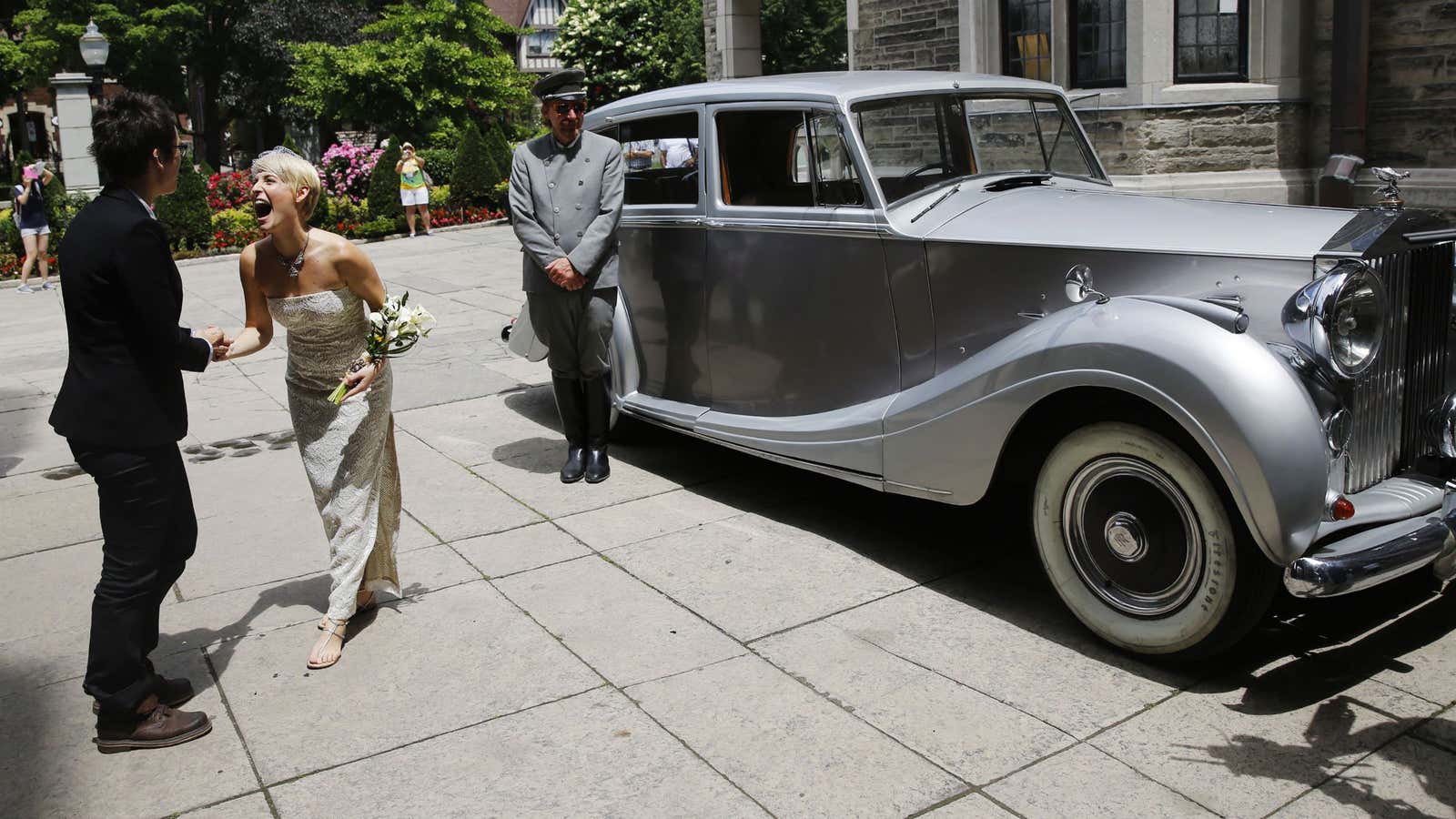Usually when a group of middle-aged people gather to kvetch about twenty-somethings, it’s about how they’re always texting, or they spend too much time on the social medias, or they’re boomeranging back to their parents’ homes because they’re afraid to just walk right up to a business owner, look him straight in the eye, and ask for a job.
But at the Aspen Ideas Festival Tuesday, a unique millennial gripe was aired:
Kids these days, they just don’t know how to fall in love.
Erika Christakis, a lecturer at the Yale Child Study Center, is a former co-master at one of the student residence halls at Harvard. She says that during her time there, students would repeatedly tell her that they didn’t have time for relationships—a sentiment that was starkly different from her own college experience.
“That was such a different experience than my college experience,” she told a crowd at the conference, which is organized jointly by The Atlantic and the Aspen Institute. “That was considered a rite of passage. It was considered part of being a newly adult person that you would try to get to know people in a more intimate way.”
The panelists each threw out their theories for the decline of college dating:
Christakis thinks it’s because college students these days are too focused on resume-building and career preparation. They’re indoctrinated into the cult of extracurricular activities in middle and high school, and the involvement obsession continues throughout college almost as if by inertia. “It’s ‘I’m secretary of this’ and ‘I’m director of that,'” she said. “And even they admit that a lot of it is kind of bogus.”
Rachel Greenwald, an author and dating coach, thinks it’s because most college “relationships” now occur within the context of a brief sexual encounter, or “hookup,” as the youth say. “Romance,” she said, “has gone the way of cursive handwriting.”
A recent study by the American Psychological Association found that between 60% and 80% of North American college students have had a hookup, even though 63% of college men and 83% of college women said they would prefer a traditional relationship.
“In gearing themselves up for sex, they’re draining themselves emotionally,” Greenwald said. “They are in training to … discard, to ignore, to swallow their emotions so they can participate in the anxiety-provoking but common dynamic which is the hookup culture.”
Lori Gottlieb, an Atlantic contributor, author, and psychologist, thinks it’s because millennials have been so coddled by their parents and teachers that they are now unable to accept others’ opinions and realities. Which makes it hard when, in a relationship, your reality is that you will go to the farmer’s market and make a healthy salad together, and your partner’s reality is Starcraft.
Gottlieb also thinks college kids don’t know how to interact face-to-face anymore. (Always with the texting.) She points out that one new Boston College class assigns students to go out on dates—the coursework includes a discussion of “what words to say” when you’d like to ask someone out.
Similarly, the University of Illinois now holds workshops on topics like ”College dating: uncovering the dating scene.” Duke University offers a counseling series on “How to be in love.” Students will learn “how to fall in love … including recognizing when this can be happening,” as well as how to communicate effectively, how to recognize when said love is “toxic,” and how to know when it’s time to break up.
Sorely missing from this list: Intro to Back-rubs, Peaceable Joint IKEA Expedit Assembly, Advanced Topics in Netflix Negotiation.
Christakis thinks the future might hold more courses like these, both for credit and not. Relationships make us happy, and they can be a part of what we need to feel successful. And in so far as universities are laboratories of successful adulthood, coursework about relationships “areentirely compatible with the academic mission of the university,” she said.
Gottlieb said that the emphasis on college campuses these days seems to be on independence, or the idea that students shouldn’t settle down too soon. But she said she also sees young-adult psychotherapy clients who feel lonely in spite of their career success. If college students were better-equipped to start and maintain relationships, her thinking goes, they would feel more fulfilled in adulthood.
Leaving the session, I ran into a group of three moms of college-aged kids who were vociferously debating the panelists’ points. One reason why today’s college kids seem so lost when it comes to some of the basic functions of adulthood, they seemed to agree, was that their parents (meaning themselves) had held their hands a little too firmly throughout childhood. For every problem there was a parent-teacher conference, for every closed door a string-pulling phone call. Today’s privileged youth are never allowed to bruise, so how could we expect them to seek out the bruising of love?
I asked one of the women if she thinks college classes on dating are a good idea.
“No. We just had to learn it ourselves,” she said. “This way, it’s the adults leading everything again.”
This post originally appeared at The Atlantic. More from our sister site:
The ethics test Facebook needs to pass




